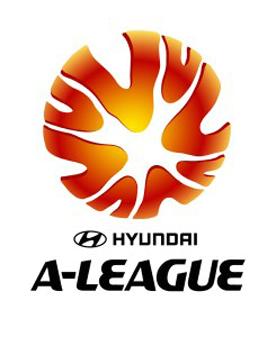The FFA’s decision to overturn the red cards shown in last weekends A-League Grand Final is controversial to say the least. I would go so far as to say that it is fundamentally wrong – in one of the cases.
Lets deal with the simpler case first. Melbourne Victory striker Danny Allsopp was red carded by referee Matthew Breeze for a supposed head butt on Adelaide defender Robert Cornthwaite shortly after Victory took a deserved lead. Despite having 16 cameras around the ground broadcaster Fox Sports couldn’t find any record of the incident taking place. The nearest point was when the two players clashed shoulders as they took positions for a free kick. Matthew Breeze didn’t see the incident either. He produced the red card on the advice of his assistant Matthew Cream.
To say the red card was a shock to the 53000 in attendance is something of an understatement. They had expected red cards for both Cornthwaite & Adelaide goalkeeper Eugene Galekovic whose actions were disgraceful – Cornthwaite clearly assaulting Allsopp and Galekovic assaulting Breeze & Victory playmaker Carlos Hernandez.
Put simply, the incident for which Allsopp was shown a red card never happened, and as such the FFA were 100% correct to overturn it. One would also expect a reprimand for Assistant referee Matthew Cream who created the incident from his mind.
The other red card though is a different matter and the FFA got it wrong.
After 11 minutes Adelaides lone striker Cristiano rose for a high ball and in doing so clearly elbowed Victory defender Roddy Vargas. Vargas fell to the ground with blood streaming from a head wound, little more than an inch from his temple. Breeze whistled for the foul immediately and ran brandishing his YELLOW card towards the players. He spoke to Cream and then produced a red card.
To most of those present it didn’t appear a controversial decision. Elbowing is after all a red card offence and one that FIFA have focussed on in recent times. If players and commentators don’t know that then they really shouldn’t be in the game. The following link makes it quite clear.
http://www.fifa.com/aboutfifa/developing/releases/newsid=103178.html
“….the Board (IFAB) supported FIFA’s request that special instructions be issued to the match officials who will be in action in Germany. As a result, they will be asked to severely sanction all cases of elbowing, reckless tackling and serious foul play with red cards, while shirt-pulling and holding an opponent will incur a yellow card.”
See also this UEFA directive…
You may of course recall Italy’s Daniele De Rossi & Holland’s Khalid Bhoulahrouz being red carded for their elbow use during the last world cup
Matthew Breeze (& Matthew Cream) was, then, 100% correct in issuing a red card, despite the protestations of Adelaide’s players and supporters and notably one very ill informed tv commentator.
But why have the FFA overturned the decision?
Well I can’t answer that. Clearly as a point of football law the FFA are in the wrong. One would think that administrators at the highest level would be fully informed of the laws of the game they administer but obviously not. Perhaps in their naivety they were unaware of the FIFA decision and thought that intent came into it?
Even then, its hard to prove that there was no intent by Cristiano. He left his elbows high in the air knowing that he was being challenged and in full knowledge that there might be a clash. I have no doubt that initially his arms are raised as leverage for jumping but that is no excuse. He can also argue that Vargas’s arms weren’t that much different. That’s true too – but of course Vargas didn’t actually elbow Cristiano.
The FFA should not have rescinded Cristiano’s card and they should have supported their referee. Breeze made a decision on the spur of the moment based on his vision of an incident. The incident clearly took place. His reaction was completely correct within the laws of the game and the FIFA directives. He, more than anyone else, is in tune with the emotion and the pace of the game, as he is a central participant. Incidents adjudicated in the heat of the moment often look different when analysed days later in the comfort of a lounge chair and away from the pressure and emotion prevalent at the time.
Breeze’s decision was not wrong and the FFA have successfully undermined their top official.






 Posted by footballthinker
Posted by footballthinker